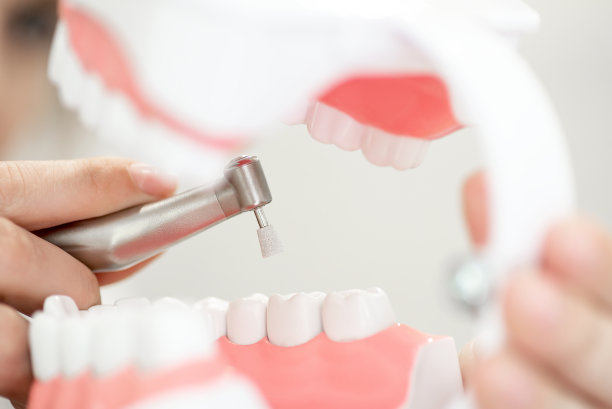Summary: Dental fillings play a crucial role in maintaining oral health by restoring cavities and damaged teeth. However, to ensure a successful dental filling experience and promote long-lasting oral health, patients must take essential precautions throughout the process. This article discusses four key areas: selecting a qualified dentist, understanding the filling materials, post-treatment care, and maintaining preventive dental hygiene. By focusing on these aspects, individuals can alleviate anxiety, experience optimal recovery, and contribute to their overall oral health in the long run.
1. Selecting a Qualified Dentist for Fillings

Choosing the right dentist is paramount for a successful dental filling experience. First, patients should begin their search by checking qualifications and certifications of potential dentists. Dental practitioners must have the necessary education and licenses to perform procedures effectively. Credentials can usually be found on the dentists website or by asking the office directly.
Another significant factor is to seek recommendations and read reviews from previous patients. Feedback from others can provide insights into the dentists skill level, comfort, and the overall environment of the clinic. Look for dentists with strong reputations for performing fillings to ensure an effective and stress-free experience.
Lastly, scheduling a preliminary consultation can be beneficial. This meeting allows patients to assess the dentists temperament, communication skills, and willingness to address concerns. A good rapport can significantly ease the anxiety often associated with dental treatments.
2. Understanding the Filling Materials Used
The type of filling material used can greatly impact the durability and appearance of the treatment. There are several options, including amalgam, composite resin, gold, and porcelain. Patients should take the time to understand the benefits and drawbacks of each material to make informed decisions.
For instance, amalgam fillings are highly durable and often used for back teeth where chewing pressures are greatest. However, their metallic color may not be aesthetically pleasing. On the other hand, composite resin fillings match the tooth color, making them less noticeable but may not be as durable as amalgam.
A discussion with the dentist about filling materials can help patients understand which option is best for their specific needs, including factors such as the location of the filling, the size of the cavity, and personal preferences. Educating oneself about these options promotes transparency and comfort with the impending treatment.
3. Post-Treatment Care for Optimal Recovery
Taking care of your dental fillings after treatment is crucial for their longevity and your overall dental health. Initially, patients should heed their dentists advice on avoiding certain foods. Chewy or hard foods can stress the filling material, especially in the initial hours after placement.
Moreover, maintaining proper oral hygiene is essential post-treatment. Patients should brush their teeth gently but thoroughly, focusing on the area around the filling. Flossing should resume cautiously; however, using waxed floss may help prevent snagging on the filling.
Regular dental follow-ups post-treatment are also important for monitoring the condition of the fillings and the overall health of the teeth. Dentists may identify signs of wear or decay early on, allowing for timely interventions to prevent further complications.
4. Maintaining Preventive Dental Hygiene Practices
To promote long-term oral health, maintaining preventive dental hygiene practices is key. Patients should commit to regular dental check-ups every six months, which can help catch issues before they require more invasive treatments. During these visits, professional cleanings can also prevent plaque buildup and other dental problems.
In addition to professional care, personal oral hygiene routines at home must be upheld. Brushing teeth at least twice a day with fluoride toothpaste and flossing daily can significantly lower the risk of cavities, thus maximizing the life of existing fillings.
A balanced diet plays a role in oral health too. Limiting sugar intake and avoiding acidic foods can help maintain overall dental integrity. Drinking plenty of water throughout the day can aid in rinsing away food particles and stimulating saliva production, which further protects tooth enamel.
Summary: A successful dental filling experience hinges on several crucial aspects, from choosing a qualified dentist and understanding filling materials to post-treatment care and preventive hygiene practices. By taking these essential precautions, patients can not only ease anxiety surrounding dental work but also ensure the longevity of their dental fillings and enhance their overall oral health.
This article is compiled by Vickong Dental and the content is for reference only.
Vickong Dental
Vickong Dental is a large medical group established in Hong Kong in 2008 by professors from well-known medical universities in Guangdong and Hong Kong, as well as medical doctors from key national '985' universities (including Master's supervisors and senior professors). The chain of branches brings together expert dentists with PhDs and Master's degrees from Hong Kong and Mainland China, committed to providing high-quality dental treatment.
"Vickong Dental Practices the University Motto of 'Healing and Serving Society,' with a Stable Operation for Sixteen Years. It Has Been honored with Hong Kong Enterprise Leaders's Choice,' and is a Global Trusted Implant Center for the Nobel Implant System. Recommended by Hong Kong Metro Broadcast and Guangdong Television, it Serves Customers from Over Thirty Countries and Regions, Gaining the Trust and Favor of Citizens from the Guangdong-Hong Kong-Macau Greater Bay Area and Surrounding Cities.

Thousands of customers' unanimous praise
The most recognized and highly recommended dental service by customers in the Guangdong-Hong Kong-Macau Greater Bay Area
We Ensure You Receive Detailed Care and Attention Here
Hong Kong standards, Shenzhen prices, Your Trusted English-speaking dentists

Vickong Dental Medical-Grade Instrument Disinfection Process
Vickong Dental Medical-Grade Instrument Disinfection Process

Vickong Dental Chain: A Warm and Comfortable Environment for Treatment






Appointment Hours

Q&A
Why choose Vickong Dental?
Vickong Dental practices the university motto 「Medicine to Benefit Society」, with each branch bringing together highly qualified dentists with doctoral and master’s degrees from Hong Kong and the Mainland, and has maintained seventeen years of steady operation。Recipient of 「2024 Hong Kong Enterprise Leaders Brand」, 「2025 Hong Kong Enterprise Leaders Brand」, a Nobel Biocare Global Trusted Implant Center, and a brand recommended by Metro Radio Hong Kong and Guangdong TV。
To date, we have served customers from more than thirty countries and regions,earning exceptionally high word-of-mouth recognition and trusted recommendations from residents across the Guangdong-Hong Kong-Macao Greater Bay Area and surrounding cities
We have eight major branches in Zhuhai、Shenzhen,and a consultation and service assurance center in Hong Kong,so you can book a free consultation at any time for any questions,which is very reassuring.
If I do not accept the quotation after the CT scan, will I be charged??
No! As long as the actual treatment has not started, you will not be charged any fees.
Will there be any additional charges during the treatment process?
No, there won’t be any additional charges. Before treatment begins, we will clearly explain the treatment plan and its corresponding fees. Only after the patient agrees and signs the consent form will we proceed with the dental service.
Can I pay in Hong Kong dollars?
Yes. Vickong Dental accepts payment in Hong Kong dollars. The amount will be converted based on the exchange rate of the day, and the applicable rate will be clearly communicated to you in advance.
Can I reschedule my appointment at any time?
Yes. Please contact us via **WeChat** or **WhatsApp** as early as possible, providing your original appointment time and details, along with your preferred new date and time slot for rescheduling.













